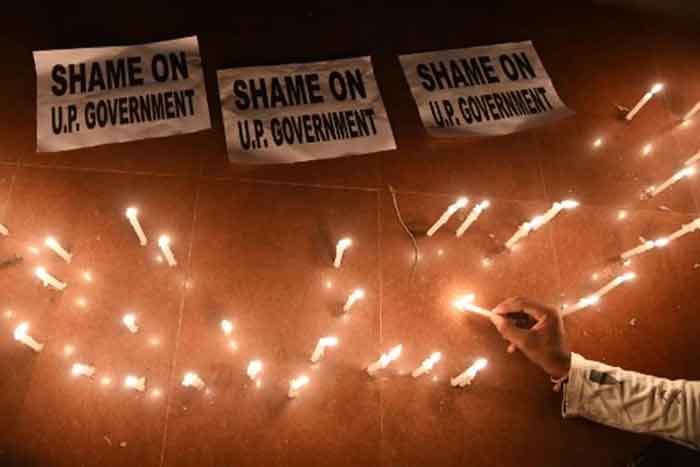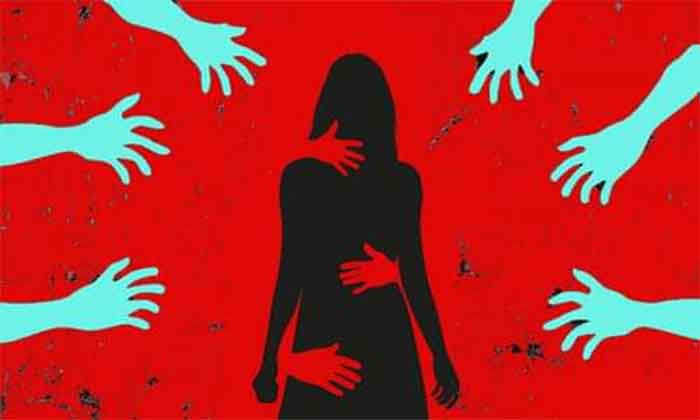
Introduction
Again, the inhuman and horrible incident of Hathras has put the entire society ashamed as it has been the second occurrence of such cruelty and brutality against women in the last eight years after Nirbhaya 2012, sparking a huge resentment and anguish against the governments exposing the concern of safety and security of the women. Although, the Hathras incidence acted as an open invitation for showing their condemnation against the BJP led governments as opposition parties, NGOs, CSOs and activists tried to feel the pain from the caste perspective which always acts as a catalyst and fueling for politics. Experiencing a huge resentment against Congress-led UPA Government on account of Nirbhaya incident 2012 could be remembered one of the leading causes for the defeat of the government in the 2014 general election. Unfortunately, crime against women did not find a universal definition of Indian politics as resentments against the inhuman, cruel and brutality of women always happen to be a selective, politically motivated and caste-angle. Therefore, experiencing only one huge protest and resentment against the BJP led governments for the last six years on account of Hathras incident amounts to be politically motivated as victim belonged to scheduled caste leading to defame the BJP as anti-Dalit. Whereas, the latest National Crime Records Bureau, (NCRB) report reveals that a woman is raped every 16 minutes, and a woman is gang-raped and murdered every 30 hours in India. Insisting for strict actions against the culprits, sensitizing the issues as a caste angle, and exposing the mal-administration through protests, marches and social media campaigns can never be the only way out of the crimes against women rather than identifying the root-causes of the crimes exist in our society. Laws alone can not prevent the crimes against women if gender-biased ideology, patriarchal attitudes, and gender biased hierarchies will exist in our society as a form of conventions, tradition, culture, customs and modernization. This piece of writing draws few of the gender biased attitudes of the middle class, upper class and elite class people which must be addressed if genuinely we are concerned for safety, security and dignities of women.
Girls as an unwelcome guest in society
Despite of the existence of Pre-Conception and Pre-Natal Diagnostic Techniques Act, 1994 (PCPNDT Act) as a means to outlaw and reduce the number of sex-selective abortions and female foeticide, India has an alarming gender imbalance as female foeticides is also being practiced by educated and prosperous families as against the popular perception that illiterate and working-class people in rural areas prefer male boy. In 2011, for every 1,000 boys aged 0-6 years, there were 852 girls in Mumbai, 832 girls in Delhi and 942 girls in Hyderabad. Therefore, the preference for male children among Indian families has resulted in about 63 million women statistically “missing” from the India’s population.
Women’s identity: non-acceptance in society
Plenty of women in India belonging to upper class change their second names after they get married; it could be a surname or the husband’s first name. Whereas no law of the land requires Indian women to change their names after they get married, but social convention or customary practices make society male-dominated sidelining the original identity of the mother. Patriarchal social rules always happen to be sweat poison for killing the original identity of the women after their marriage as children get titles from their fathers’ names. Though, Bombay High Court deserves to be applauded as it had amended in 2011 a crucial rule under the Family Courts Act to prevent a woman from being compelled to file any marriage-related proceedings only in her husband’s surname so as to enable transparency in the law on a woman’s name after her marriage.
Women as an underperformer in society
Another chronic gender biased attitudes have been continuing in society as a form of gender biased disparities spanning across leading industries including film industries, sports, advertisement, IT industries, daily wagers etc. Although, the constitution of India does not expressly guarantees the right to receive equal pay for equal work as a fundamental or a constitutional right of the workers or employees. But, it can though be read through the interpretations of Article 14, 15 and 16 along with numbers of statutory provisions namely Equal Remuneration Act, 1976; Minimum Wages Act, 1948; Workmen’s Compensation Act, 1923 etc which guarantees the fundamental rights of equality before law. According to the Monster Salary Index (MSI) published in March 2019, women in the India earn 19% less than men. According to the latest World Economic Forum’s (WEF) Global Gender Gap Report 2018, India ranked 108th out of 149 countries on the gender gap index. Therefore, gender biased attitudes must be eradicated from the society itself before raising the questions of safety and security of the women.
Women as a second-class citizen in society
Other issues of women with regard to equal status and positions are deeply rooted in our arts, literatures, theaters, and films etc. which need to be broadly interpreted as they act as mirror of society. In India, women as a second class citizen are being portrayed through arts, literature and filming. For instance, the names of the female lead actor appear after the name of the male actor during casting of the movies or televisions program except for a few of the women centric movies like Mother India, Queen etc. Engaging women on the low pay basis as cheerleaders for Indian Premier League (IPL) with the purposes of glamorizing the game so as to get high TRP, business and advertisements, expose the gender biased ideologies of the elite classes. Indian advertisements industries turn around sexism as a number of the deodorant ad implies to attract a woman by showing ad “just spray it on and turn her on”. Naming a company as ‘Manforce’ itself indicates an indepth gender biased attitudes prevalent in our society as people at large level accommodate such products of the company ignoring women’s dignities. In 2009, imposition of a strict dress code by the Badminton World Federation (BWF) requires female badminton players to wear skirts on court with a justification of glamorizing sport’s profile among viewers and sponsors again expose the male-dominated attitudes, and even, a few of the reactions from Indian sports fraternities appeared as disapproval steps of federation.
Conclusion
Public resentments and anguish against the government would be inherent in any civilized society if horrible incidents like Nirbhaya and Hathras occur frequently despite of existence of strict laws namely POSCO Act and IPC, CrPC. But, condemnations as a form of protests, rallies and social media against such kind of inhuman and horrible crimes may provide immediate reliefs rather than reach at ultimate root-cause of the societal evils. On one hand, a huge fight and competition for condemnation of the Hathras incident among the political parties, activists and peoples have been hitting the news headline; on the other hand, people kept on maintaining silence while an attack on famous actress’s dignity by giving an abusive and derogatory remarks. Therefore, there must be a mental revolution among the people against gender-biased attitudes if genuinely we are concerned for safety, security and dignities of women.
Dr Ahmed Raza, Assistant Professor, (MANUU, Hyderabad). Project Director,Minor Research Project ICSSR sponsored, Ministry of Education, Govt. of India
SIGN UP FOR COUNTERCURRENTS DAILY NEWSLETTER
















































